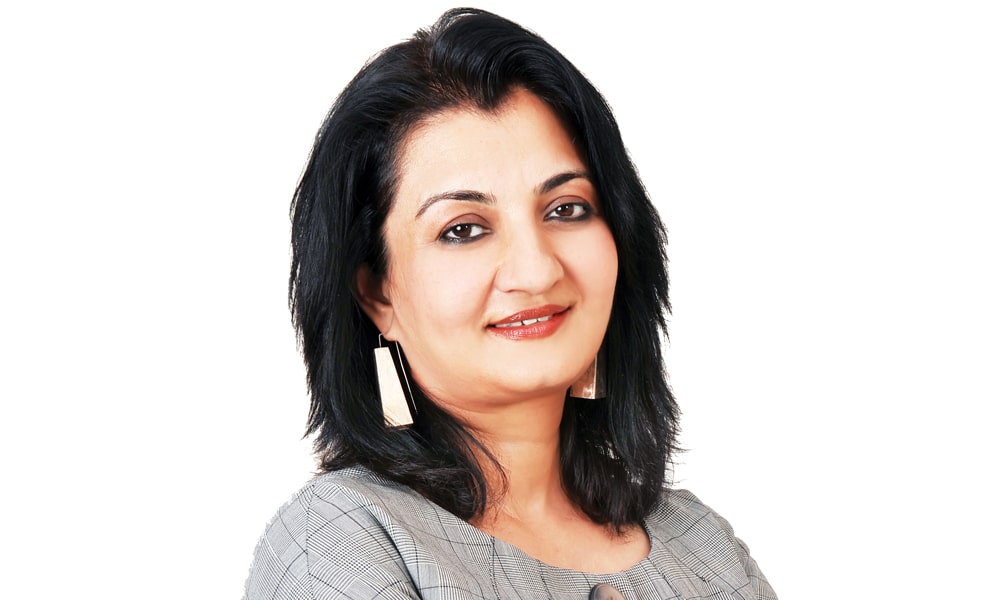
The use of technology is one of the major USPs of Kalorex. The teachers use technology to implement curriculum methods and strategies to maximise student learning. They apply technology to facilitate variety of assessment and evaluation strategies, says Manjula Pooja Shroff, MD & CEO, Kalorex in conversation with Elets News Network (ENN). Excerpts:
What factors help a school attain top position in a city or state?
Well-qualified faculty and consistent excellence in academic/board results can help. But other useful factors can be teacher training and innovations, students’ recognitions and alumni placements, and use of innovative teaching methods and latest pedagogies.
How technology can be useful in influencing learning outcomes, which one clicked for your school?
ERPs and mobile apps help schools to communicate with students and parents. These enable parents to know the learning outcomes whenever they require. Technology also helps students to update themselves at home by revising what is taught in the classroom.
How do you maintain good balance between academic and co-curricular activities at your school?
The schools conduct large number of cocurricular activities for students entire year. These include intra and inter school events for sports, dance, drama, music, social causes, literary events/festivals, field trips and educational trips, Model United Nations (MUNs), career counselling workshops etc..
How do you develop an interesting curriculum which also focuses on the holistic development of students at your school?
Kalorex has formulated its curriculum framework in a way that caters to shaping global learners. Curriculum of Kalorex Preschools is a blend of Multiple Intelligence, Piaget’s Cognitive Theory, Reggio Emilio and Montessori. Kalorex curriculum imbibes the best of 21st Century reading – learning skills along with local value system. The most important goal of our curriculum is to help children become independent, self – confident along with gaining excellence in studies.
At Calorx Public Schools, DPS & COIS, the four Theories of Learning – Constructivism, Behaviourism, Cognitivism and Connectivism form the basis of instructional delivery.
The theories are beautifully woven into the curricula with different approaches likeConventional, Interdisciplinary, Active and Blended Learning. The school follows a balance of “Humanist” and “Constructivist” pedagogies.
With ever changing dynamics of the education sector, how teachers are changing their ways to educate? How do you keep the curriculum up to date to meet the changing demands?
In Kalorex, we ensure that the teachers are kept updated on the latest teaching practices through in-house and external trainings. The curriculum follows the board requirements as applicable for CBSE, IGCSE and IB and immediately incorporates any changes that come about.
What strategies do you follow for innovation and reform in the school administrative system?
All the project heads and senior Altus members get together once a month for the Kalorex ‘Huddle Meeting’ where some quality presentations on best practices and new educational policies are shared. The centralised learning development and quality department circulates a training calendar to all projects after taking their specific requirements and organises training throughout the year for admin staff and teachers. These trainings focus on building competency, developing skills and orientation to Kalorex. Management Information Systems have been put in place for Academics, Trainings, Transport and other departments.
To administer a school effectively, what challenges have you faced in system monitoring?
We have various tools for monitoring like MoM (Minutes of Meetings), MIS (Management Information System), departmental audits, feedback mechanism, various surveys, reports, tracking systems etc. All systems and processes are monitored through these tools. Presently we are working on introducing business intelligence and ticketing software for monitoring.
How do you integrate the development of students with professional development of teachers?
Students are exposed to a variety of scholastic and co scholastic activities. The opportunities given to students to hone their skills and talents are exemplary. Teachers are also given opportunity for upgradation of skills and orientation towards school policies through training programmes offered by the LDQ department as well as arranged by the schools.






















